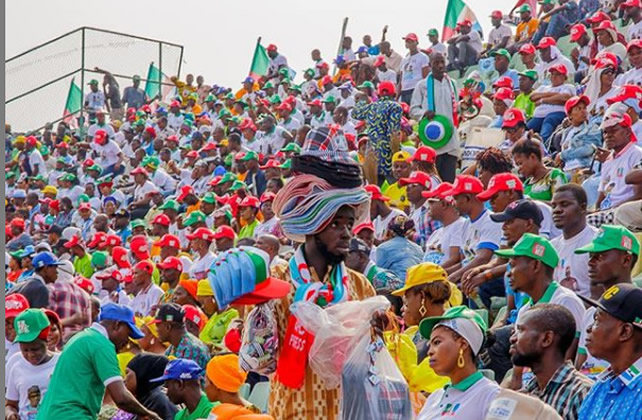By
Pius Mordi
The gale of defections of sitting state governors is so overwhelming that politicians themselves have been had put interpreting the situation. At the last count, the only states in the south that are yet to jump ship are Abia, Oyo, Osun and Anambra. I am not sure Rivers State can be called a non-APC state. Chukwuma Charles Soludo is still flying the flag of APGA in delicate arrangement that facilitated a cosy relation between him and with Aso Rock.

Reacting to the defections the magnitude of which were unknown in the second republic, Seyi Makinde, one of only two governors no longer seeking reelection alongside Bayelsa’s Douye Diri, attributed it to the absence of a clear political ideology among the nation’s political actors. He is not alone with that line of perception. But there are equally other germane interpretations.
Dele Momodu is one politician who believes the defections are the product of deliberate cajoling and arm twisting of the major figures in opposition parties to build a stronger base for President Bola Tinubu as the country gears up for a pivotal 2027 general election.
A corollary of Momodu’s allegation of arm twisting is the perception that Tinubu’s machinery is wary of the ideology split in the party along regional lines. Tinubu’s economic reforms effected since coming into Aso Rock, apart from unleashing unprecedented poverty, upended some groups in the power structure of the federation. While referencing the growing poverty among the people, northern politicians have not failed to drum it repeatedly that Tinubu’s reforms are anti-north without defining precisely what they meant. To some hawks among them, the prospect of a second term for Tinubu is what they cannot countenance. Power, therefore, should be brought back to the north in 2027.
The push factor in luring opposition states to team up with Tinubu has the colouration of a countervailing move to get southern states in the bag prior to the 2027 elections given the uncertainty over some sections of the north. Building a solid and cohesive southern solidarity seems a potent strategy for neutralising the coalition of northern political leaders which has found expression in the ADC with Atiku Abubakar as the arrowhead.
In effect, what is emerging is a political process inspired not by shared political ideology and development agenda. Parties are more of special purpose vehicles to fulfill specific, narrow political objectives. By aligning with governors who also face the challenge of reelection, Tinubu will be able to forge an alliance of like minds with common objectives, deploying the federal might with the powers in the states to secure a return.
Although the defections have been comparatively successful in the south, thoughts of its not paying off in the north, albeit middle belt, are being dispelled by the admission of Caleb Mutfwang, governor of Plateau State. According to him, he is under tremendous pressure to leave PDP and team up with APC
The strategy has opened APC to allegations of coercion as Dele Momodu postulated. In previous administrations, defection was not unknown for a sitting governor to align with a different political party. That was precisely what David Umahi did in Ebonyi State. But unlike what is playing out at present, Umahi was smart enough to wait until after securing reelection under Muhammadu Buhari before pitching his tent with APC. As Tinubu’s Minister of Works, he has been a vocal advocate of defection to the ruling party, especially in his own zone, the south east.
The outcome of the September 2024 governorship election in Edo State may have sowed doubts in the minds of governors on their ability to secure victory without federal support. Against all permutations, APC’s Monday Okpebholo was declared winner in a contest that pitched him with an efable and intellectual candidate, Asue Ighodalo of the PDP. With the controversial conduct of the poll and the role of the judiciary that since 2023 has not covered itself with garlands, other governors, especially those up for reelection, felt the odds may be stacked against them.
At a time the National Assembly is in the process of amending the Electoral Act, it will take a fundamental review to dispel the perception that governors may have been told that only an alliance with Aso Rock may guarantee their victory in 2027. If the review is not far-reaching enough, the fragile confidence in the electoral process that was dented by the conduct of the Independent National Electoral Commission (INEC) in 2023 will have profound impact on voter turn out.
Just like every other special purpose vehicle, the day after will surely come. Tinubu may beat back the northern coalition under ADC to secure reelection. Lacking in shared ideological convictions and with different political agenda, it may not take long for the APC juggernaut to unravel after 2027. Eventually, the political process would have missed the opportunity of evolving further in over a decade of APC rule. The positive side of it is that there will be nothing like one-party state post-2027. We may just have to start all over again in evolving ideologically driven parties.

